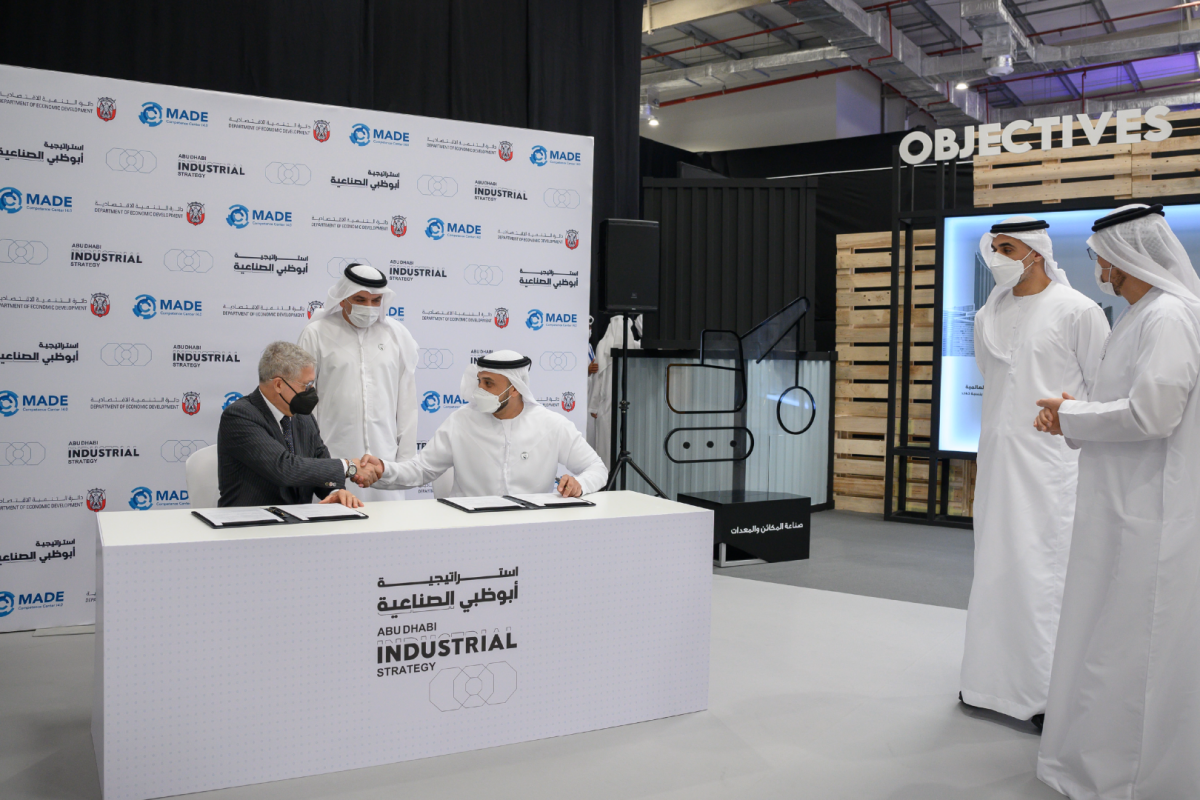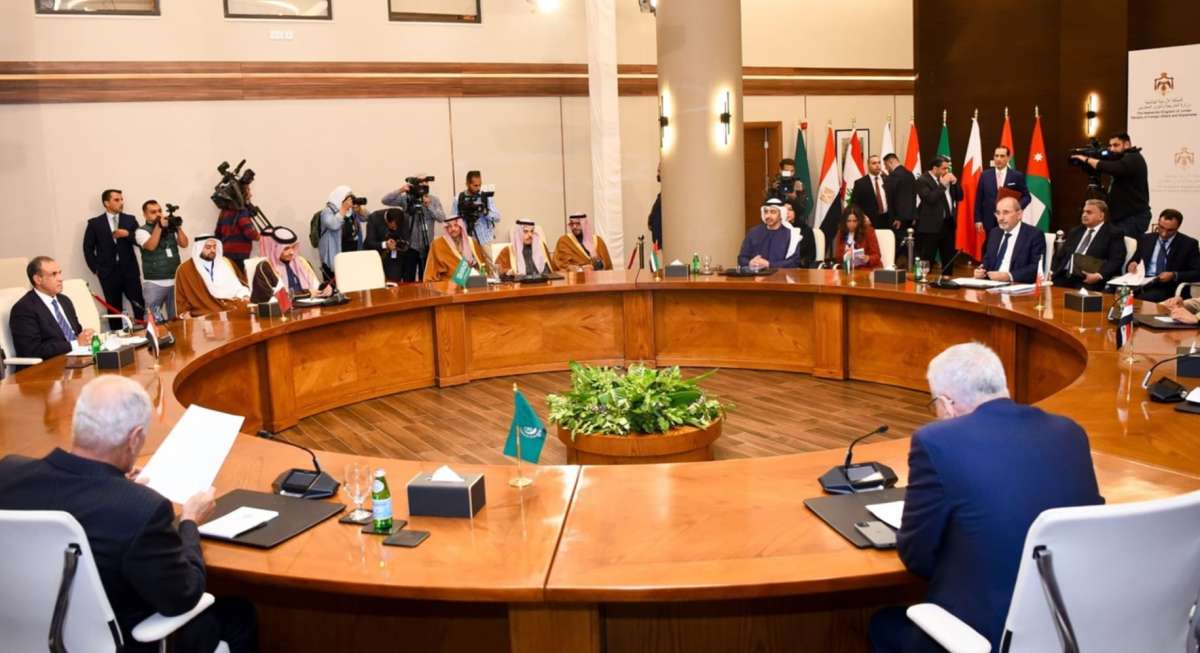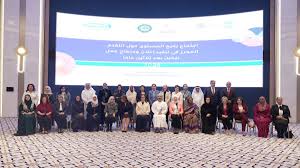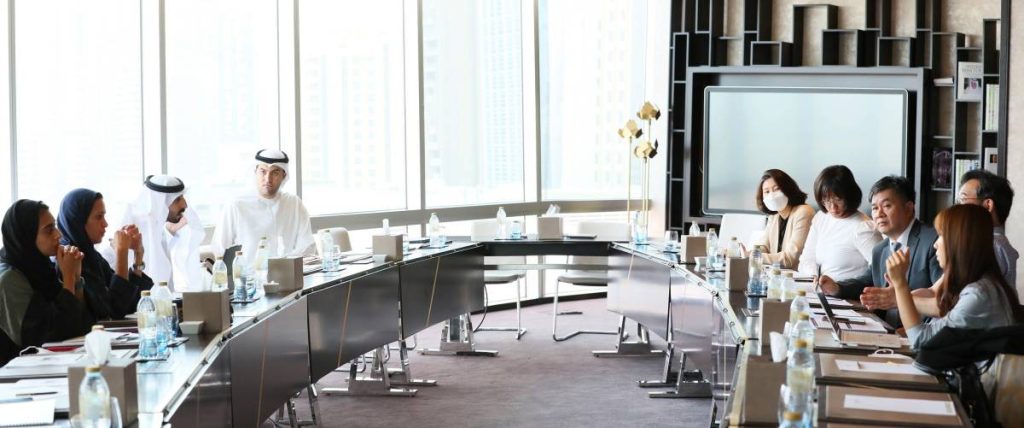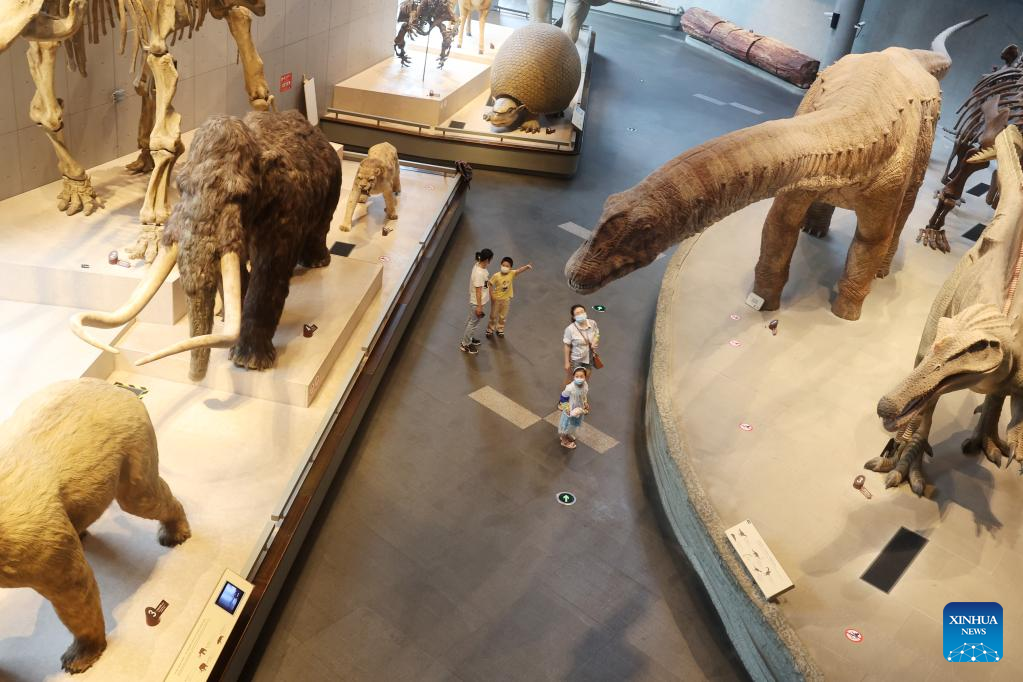The government will invest Dh10 billion across six transformational programmes to more than double the size of Abu Dhabi’s manufacturing sector to Dh172 billion by 2031 by increasing access to financing, enhancing ease of doing business, and attracting FDIs, reports Asian Lite Newdesk
Sheikh Khaled bin Mohamed bin Zayed Al Nahyan, Member of Abu Dhabi Executive Council and Chairman of Abu Dhabi Executive Office, on Thursday launched the Abu Dhabi Industrial Strategy to strengthen the emirate’s position as the region’s most competitive industrial hub.
Abu Dhabi Government will invest AED10 billion across six transformational programmes to more than double the size of Abu Dhabi’s manufacturing sector to AED172 billion by 2031 by increasing access to financing, enhancing ease of doing business, and attracting foreign direct investment.
The strategy, via the six programmes, will also create 13,600 skilled jobs, with a focus on Emirati talent, and boost Abu Dhabi’s trade with international markets, with a goal to increase Abu Dhabi’s non-oil exports by 143 per cent to AED178.8 billion by 2031.
Multiple initiatives, including a new circular economy regulatory framework, as well as new green policies and incentives, will help continue Abu Dhabi’s transition towards a smart, circular economy, powered by an industrial sector that champions responsible production and consumption across waste management, parts supply, and manufacturing.
Commenting on the milestone launch, which took place at Khalifa Industrial Free Zone (KIZAD), Mohammed Ali Al Shorafa, Chairman of the Abu Dhabi Department of Economic Development (ADDED), said, “Abu Dhabi’s blueprint for a comprehensive industrial strategy is an ambitious vision that will guide the future of the emirate’s manufacturing sector, and shape a resilient and diversified economy for decades to come.
“In line with the UAE’s industrial strategy, Operation 300bn, our roadmap will create the ideal environment for businesses to emerge and grow. It addresses our ever-growing productivity goals, helps secure future investor opportunities, safeguards our human capital and boosts job creation, and enables us to pre-empt evolving market conditions and shifting trends.
“The Abu Dhabi Industrial Strategy, which includes plans for a smart circular economy, catalyses value creation and ensures cost competitiveness. And with the combination of Abu Dhabi’s enabling public-private partner business ecosystem and investor-friendly regulations, we are ushering in a new era of economic growth,” he added.
While enhancing sustainability across the ecosystem in line with the UAE Net Zero by 2050 and the National Climate Change Strategy, the manufacturing industry’s ongoing evolution will be accelerated by the integration of advanced Industry 4.0 technologies to spur growth, competitiveness and innovation.
The strategy’s iniatives will also advance the emirate’s development into a global hub for future industries, with a focus on seven targeted manufacturing sectors: chemicals, machinery, electrical power, electrical equipment, transportation, agri-foods, and pharmaceuticals.
Six transformational programmes will drive growth and innovation, boost skills, strengthen the ecosystem for local manufacturers, ease access to global markets, and advance the transition to a circular economy.
The Industry 4.0 programme will accelerate business growth through the widespread adoption of new technologies and processes. Their integration will spur competitiveness and innovation, backed by initiatives including a smart manufacturing funding programme, a smart assessment index, and competency centres that provide training and knowledge sharing.
As well as creating 13,000 skilled jobs by 2031, with a focus on Emirati talent, the talent development programme will assess industry-wide competencies, and offer upskilling programmes to fill skills gaps and meet future needs. Job placement programmes will offer rewarding career pathways in high-demand areas.
Ecosystem enablers include a digital geographic information system (GIS) mapping for industrial land search and a unified inspection programme for quality control. Further enhancements to ease of doing business is also a key focus, through reimbursement incentive programmes for government fees, land rebates, R&D, and tax, as well as streamlining customs processes and costs, and introducing regulatory reform around industrial and housing laws.
The homegrown supply chain programme will build industrial sector resilience by increasing self-sufficiency and promoting domestic products. The already extensive Abu Dhabi Golden List, which encourages government procurement of high-demand, locally manufactured products, is being expanded; whilst access to foreign markets will be eased through a comprehensive economic partnership agreement (CEPA), as well as a bilateral trade agreement programme. Locally manufactured products will also be purchased and provided as part of foreign aid.
ALSO READ:Warner Bros. World™ Abu Dhabi set to launch all-new DC Super Hero Season to fans
To drive local infrastructure development for end-to-end integration, a supply chain equity investments fund will be established. In addition, offsets will be offered to support industrial funding, and the Abu Dhabi Channel Partners initiative will incentivise foreign direct investment (FDI). Infrastructure enhancement progammes in Al Ain and Al Dhafrah will further strengthen the ecosystem.
Alongside the launch of the strategy, several new industry partnerships were signed, including: Abu Dhabi Department of Economic Development (ADDED) and MADE Competence Centre I4.0 (Italy) ADDED will work with MADE to strengthen the capabilities of the industrial workforce through the Industry 4.0 Skills Development Programme to be ready to adopt Industry 4.0 technologies, and to enhance the innovation and entrepreneurship eco-system.
